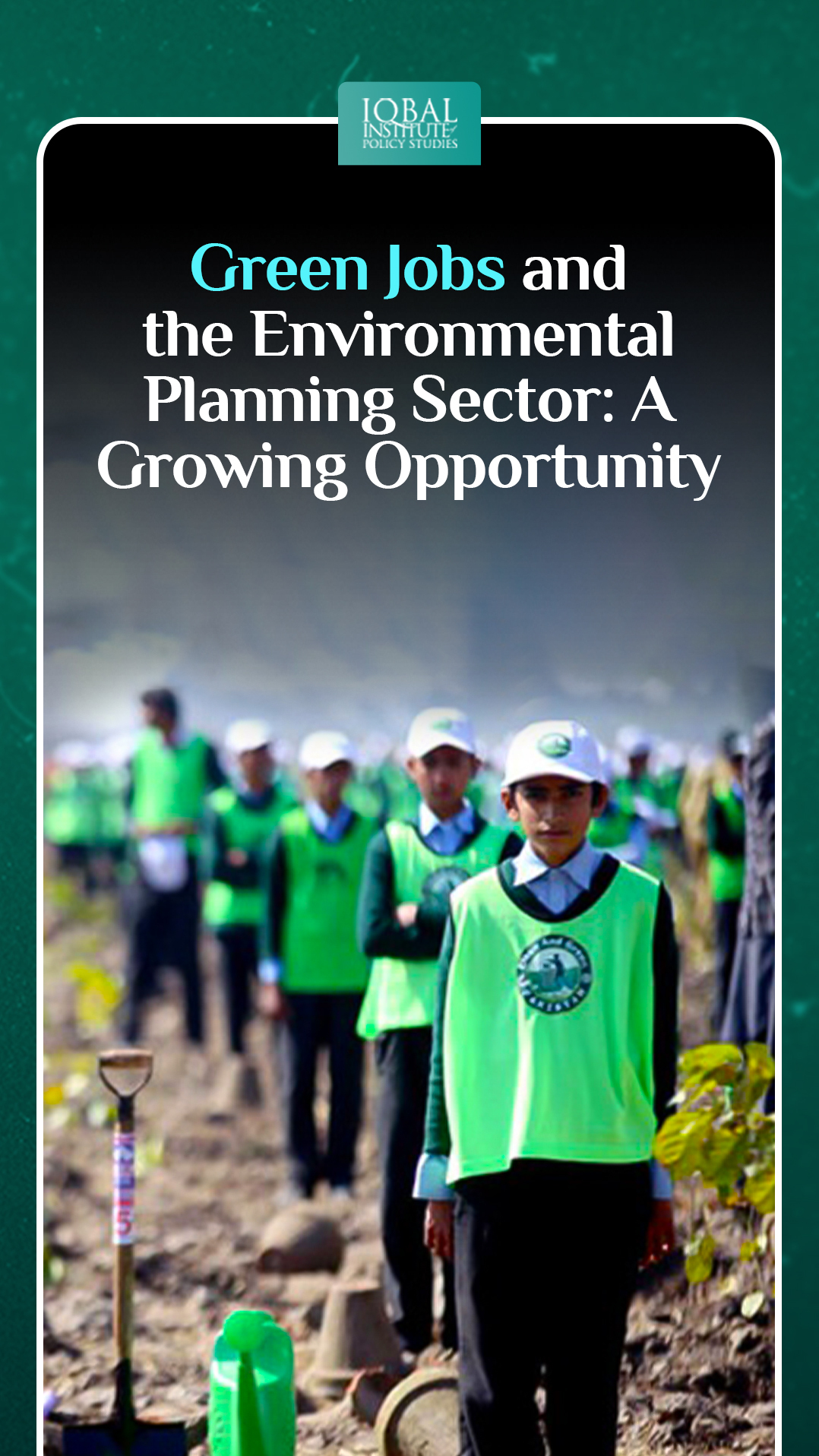In the wake of global environmental challenges and the urgent need for sustainable development, the focus on green jobs and the environmental planning sector has gained significant momentum. As societies worldwide strive to address climate change, biodiversity loss, and resource depletion, the demand for skilled professionals in the environmental planning field is rapidly increasing. This blog explores the dynamics of green jobs, their significance in the current scenario, and the promising opportunities within the environmental planning sector.
The Rise of Green Jobs
Green jobs, also known as environmentally friendly or sustainable jobs, refer to employment opportunities that contribute directly to preserving or restoring the environment. These roles span various industries, from renewable energy and conservation to sustainable agriculture and environmental planning. As the world transitions towards a low-carbon and circular economy, the demand for green jobs is on the rise.
The Environmental Planning Sector: Key Pillar of Sustainability
Environmental planning is a crucial aspect of sustainable development, encompassing activities such as land use planning, natural resource management, and climate action. Professionals in this sector work to create strategies that balance economic, social, and environmental objectives. Their goal is to design and implement policies that promote sustainable practices, minimize environmental impact, and enhance resilience to climate change.
Key Components of Environmental Planning Jobs
Land Use Planners
These professionals assess and designate land for various uses, taking into account environmental impact, infrastructure needs, and community well-being. They play a pivotal role in creating sustainable urban and rural spaces.
Natural Resource Managers
Responsible for the sustainable use and conservation of natural resources, these individuals develop and implement plans to ensure the long-term health of ecosystems. They may work in forestry, fisheries, or wildlife management.
Climate Action Planners
With climate change a top global concern, professionals in this niche focus on developing strategies to mitigate and adapt to climate change. This includes creating policies for renewable energy, energy efficiency, and carbon reduction.
Environmental Impact Assessment Specialists
Before major projects are undertaken, these specialists evaluate potential environmental impacts. Their role is crucial in ensuring that development projects are undertaken responsibly and sustainably.
The Growing Need for Environmental Planners
The urgency of addressing environmental issues has propelled the demand for skilled environmental planners. Governments, businesses, and communities are recognizing the importance of integrating sustainability into their development plans. As a result, there is an increasing need for professionals who can navigate the complex intersection of economic, social, and environmental considerations.
Opportunities for Green Jobs in Environmental Planning
Renewable Energy Planning
With the global shift towards clean energy, there is a growing demand for professionals who can plan and implement renewable energy projects. This includes assessing suitable locations, obtaining permits, and managing the integration of renewable energy into existing infrastructure.
Urban Sustainability Planning
As urbanization continues to increase, there is a need for planners who can design and manage sustainable cities. This involves creating green spaces, promoting public transportation, and implementing policies that reduce the environmental footprint of urban areas.
Water Resource Management
With water scarcity becoming a pressing issue in many regions, professionals in water resource management play a critical role in developing sustainable water management plans. This includes assessing water availability, implementing conservation measures, and addressing pollution.
Biodiversity Conservation Planning
The loss of biodiversity is a global concern, and environmental planners in this field work to preserve and restore ecosystems. This involves creating protected areas, implementing habitat restoration projects, and developing strategies for sustainable resource use.
Circular Economy Planning
The concept of a circular economy, where resources are used efficiently and waste is minimized, is gaining traction. Environmental planners contribute by developing policies and strategies to promote circular practices in industries and communities.
Education and Skill Development for Green Jobs
To pursue a career in environmental planning, individuals typically need a background in environmental science, urban planning, geography, or a related field. Additionally, acquiring specific skills such as Geographic Information System (GIS) proficiency, environmental impact assessment expertise, and a deep understanding of sustainability principles is crucial.
Many educational institutions now offer specialized programs and courses in environmental planning and sustainable development to meet the growing demand for skilled professionals. Online platforms and workshops also provide opportunities for continuous learning and skill development in this field.
Conclusion
The intersection of environmental sustainability and job opportunities is creating a landscape ripe with potential for those interested in green careers, particularly in the environmental planning sector. As the world acknowledges the urgency of addressing environmental challenges, the demand for professionals who can design and implement sustainable solutions is expected to continue growing.
For individuals passionate about making a positive impact on the planet, a career in environmental planning offers a fulfilling and meaningful path. By actively participating in the transition to a more sustainable future, these professionals contribute to building resilient communities, protecting biodiversity, and mitigating the impacts of climate change. As the momentum for green jobs builds, the environmental planning sector stands out as a beacon of hope for a more sustainable and equitable world.
This article is written by Radma Nouman. Radma is a research analyst at the Iqbal Institute of Policy Studies (IIPS).



Leave a Reply